
Culture
22:03, 20-Dec-2018
'Four decades of reform and opening-up' is China's top buzzword of 2018
Updated
22:02, 23-Dec-2018
Zhao Yuheng
03:36
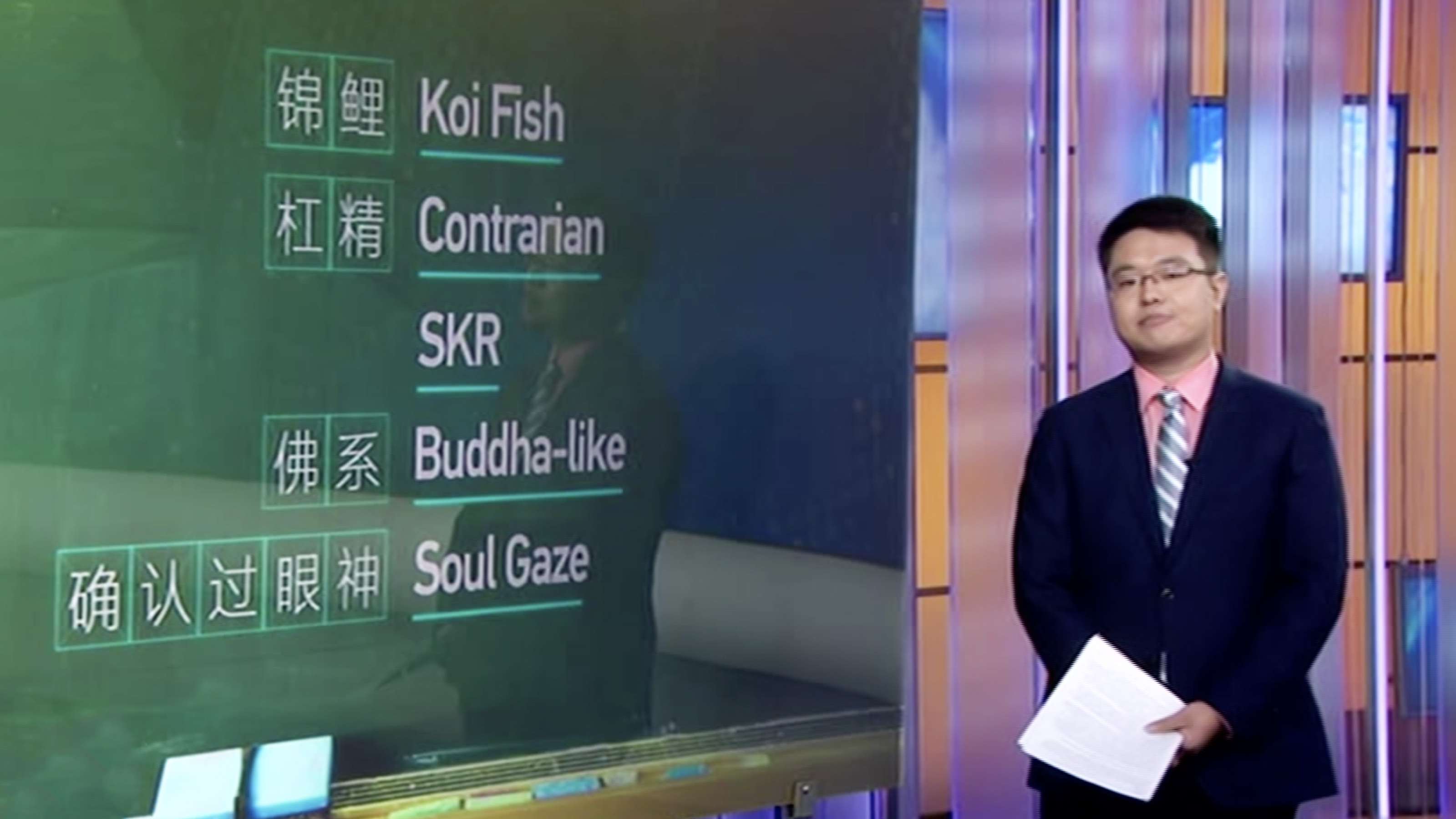
According to a recent online poll in China, "four decades of reform and opening-up" was the top buzzword in the country in 2018.
The poll was conducted by China's National Language Resource Monitoring and Research Center and the Commercial Press, along with some media and internet companies.
The result of the poll was declared on December 20.
However, it's worth noting that some Chinese words are translated into short phrases in English.
'Four decades of reform and opening-up'
China held a conference to commemorate the 40th anniversary of reform and opening-up in Beijing on December 18, where Chinese President Xi Jinping delivered a keynote speech.
China's economy witnessed a meteoric rise during four decades of reform and opening-up. Its GDP grew from 53 billion U.S. dollars in 1978 to a whopping 11.96 trillion U.S. dollars in 2017. Today, China is the second-largest economy in the world after the United States.
'Buddha style' and 'koi fish'
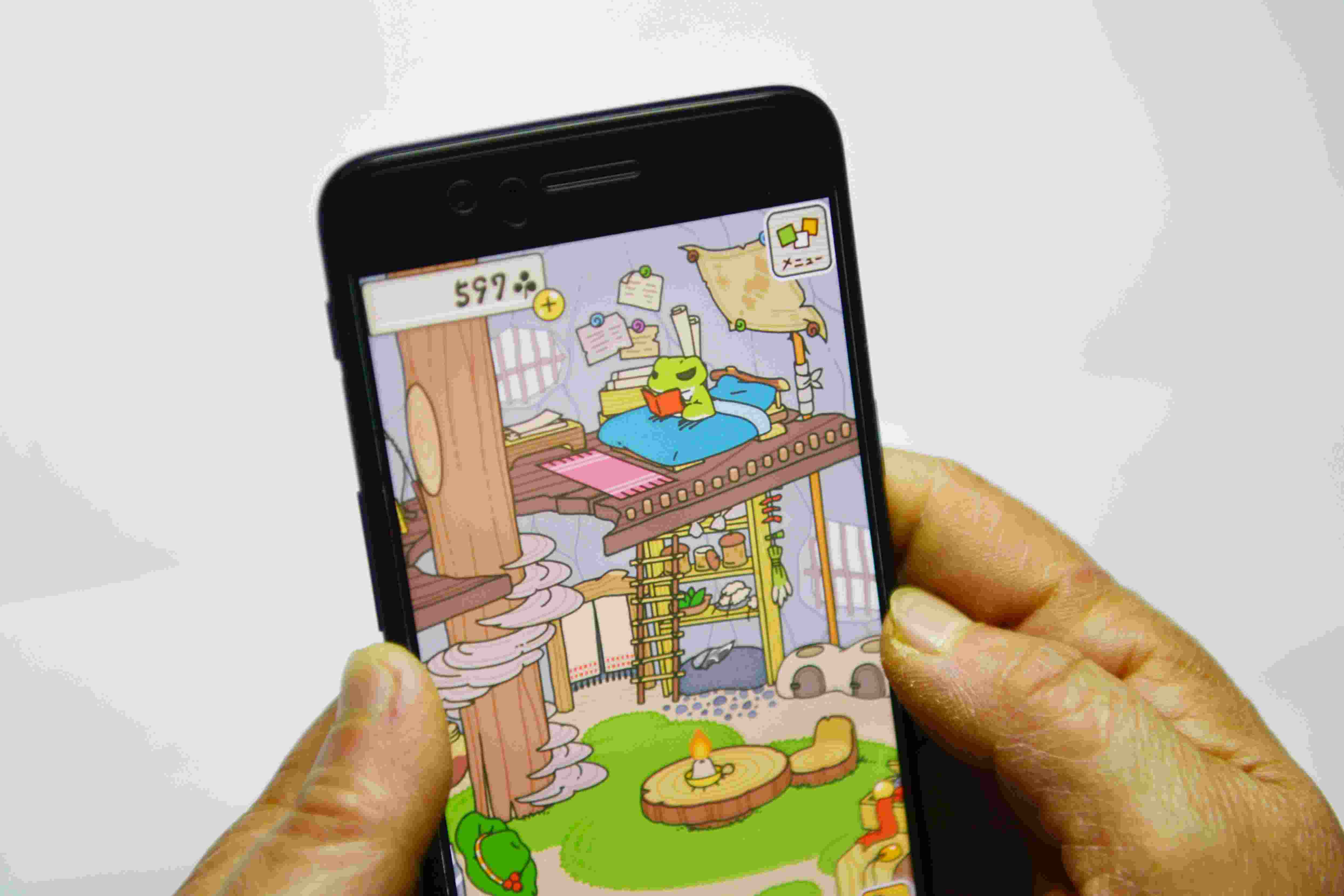
"Travel Frog" is a typical "Buddha style" mobile game in Japanese. The game went viral in China despite the language barrier. /VCG Photo
"Travel Frog" is a typical "Buddha style" mobile game in Japanese. The game went viral in China despite the language barrier. /VCG Photo
Among the top 10 buzzwords of the year are also catchphrases that ruled Chinese social media in 2018.
"Buddha Style," describes young people, especially Chinese millennials, who appear to have a "Zen-like" approach toward work and life. The word has been trending among Chinese netizens since the beginning of the year.
While some criticize the "Buddha Style" way of life citing the lack of desire and ambition, many believe that it's more like self-mockery.
"I think it is a simpler way of life, especially for many people who lead a stressful life these days," said a young man, surnamed Chang, who lives in Beijing.
"Koi fish" stormed Chinese social media overnight in September.
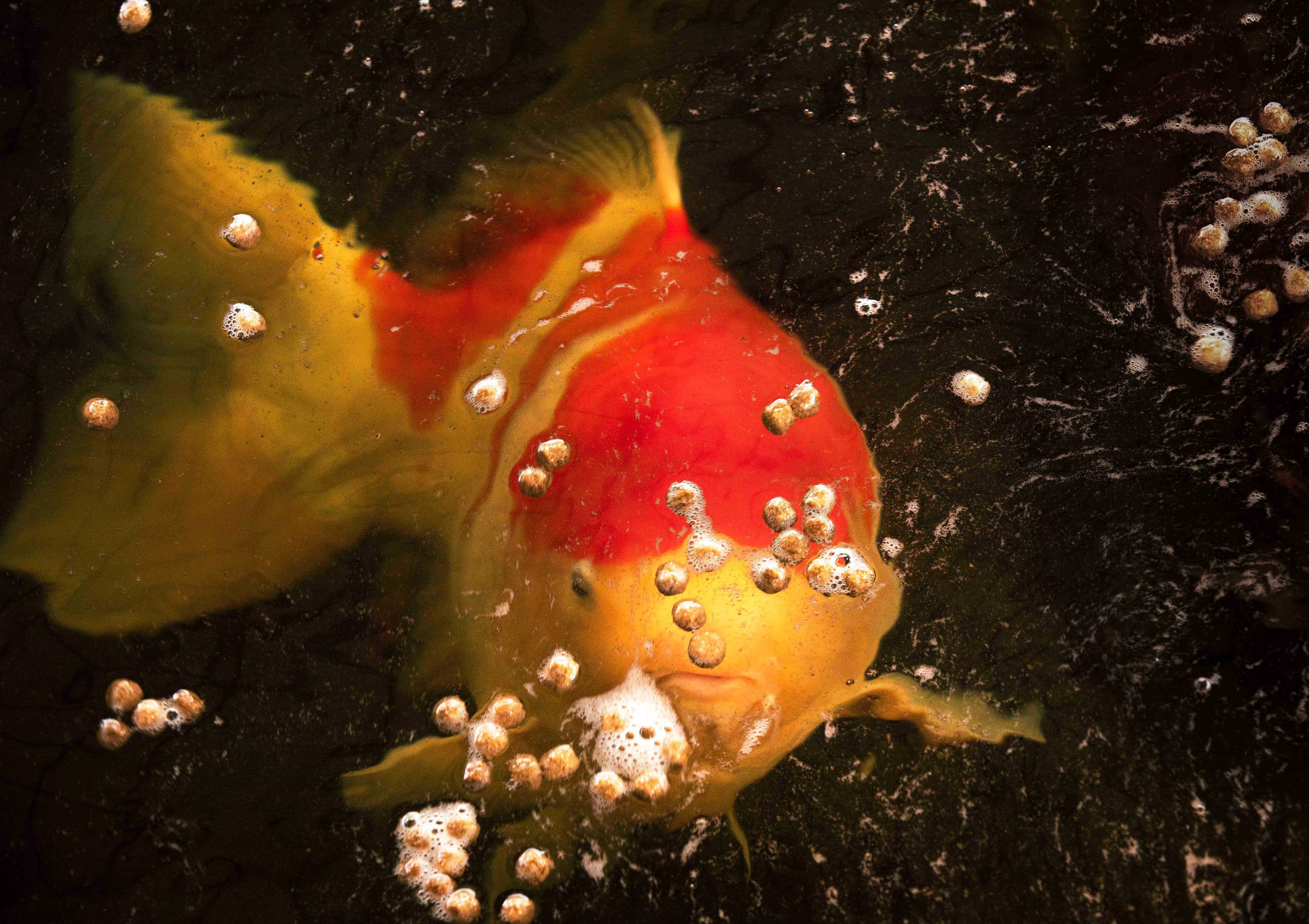
Koi, the fish that stormed China's social media. /VCG Photo
Koi, the fish that stormed China's social media. /VCG Photo
Ahead of China's National Day holiday, Alipay, one of China's top online payment platforms, launched a marketing campaign on Weibo.
Alipay said that it will choose a "single" user, via lottery system, who shares the message to be China's "koi fish." The prize included mega gift vouchers and an overseas trip.
"Koi fish" has been a symbol of good luck in China since ancient times. The message was shared by millions of Weibo users.
Even after the event was over, Chinese netizens continued to share koi fish pictures to spread the good luck.
Top 10 new words
Poll's result also includes a list of top 10 new words, including "China International Import Expo," which made a debut on November 4 in Shanghai, and "Harvest Festival", a new holiday designated this year.
"Consumption downgrade" is also on the list.
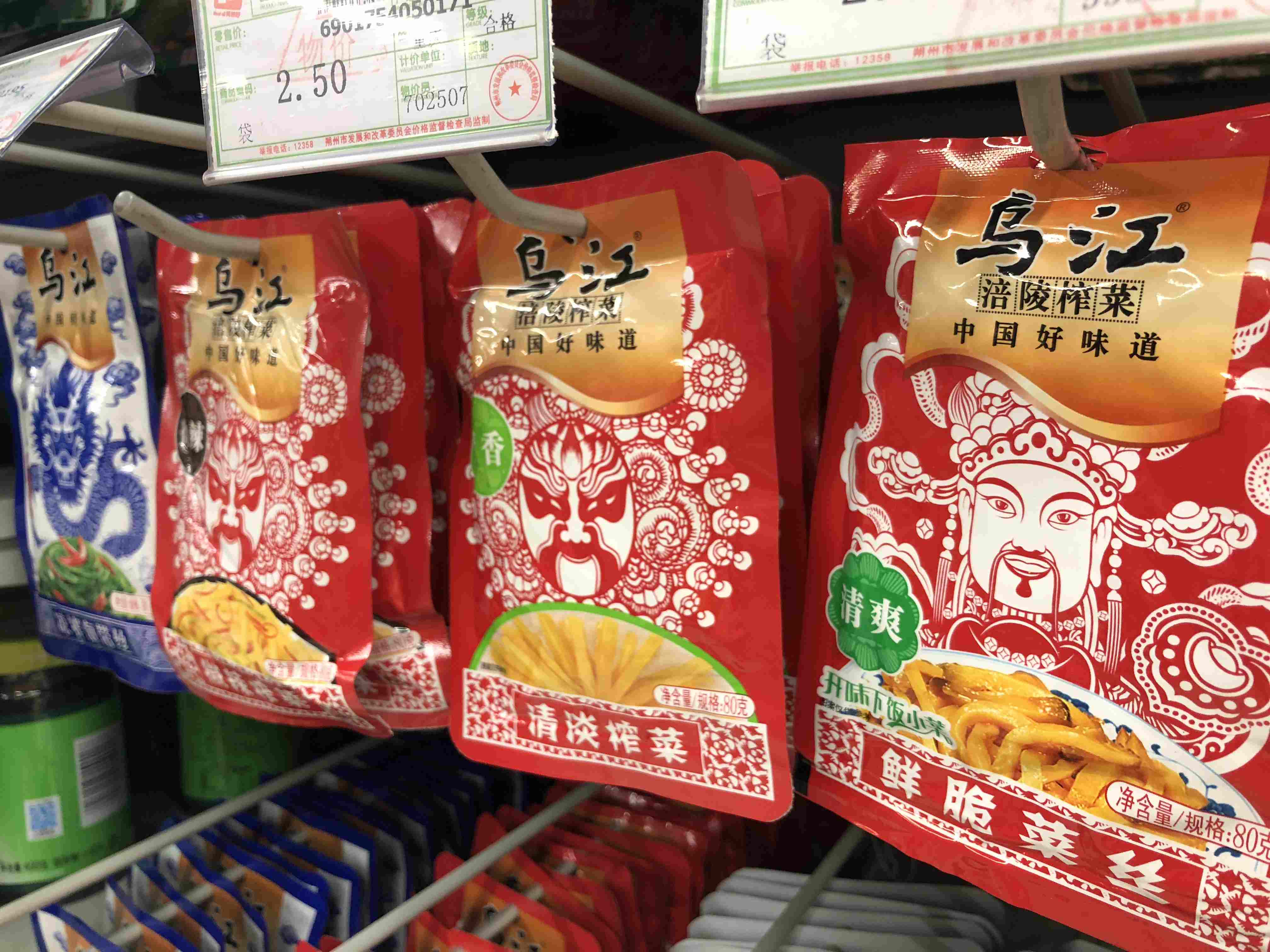
Wujiang Zhacai is one of China's best-selling brand of pickled mustard plant. Its sales grew 34.11 percent year-on-year in the first half of 2018. /VCG Photo
Wujiang Zhacai is one of China's best-selling brand of pickled mustard plant. Its sales grew 34.11 percent year-on-year in the first half of 2018. /VCG Photo
There is an ongoing debate over whether China is experiencing a consumption upgrade or downgrade. Some point out that rising sales of zhacai, or pickled mustard plant, show people tend to buy cheaper goods.
Some economists say that zhacai, along with instant noodle and cheap liquor, form the troika of consumption downgrade, as they are cheap but tasty and widely available.
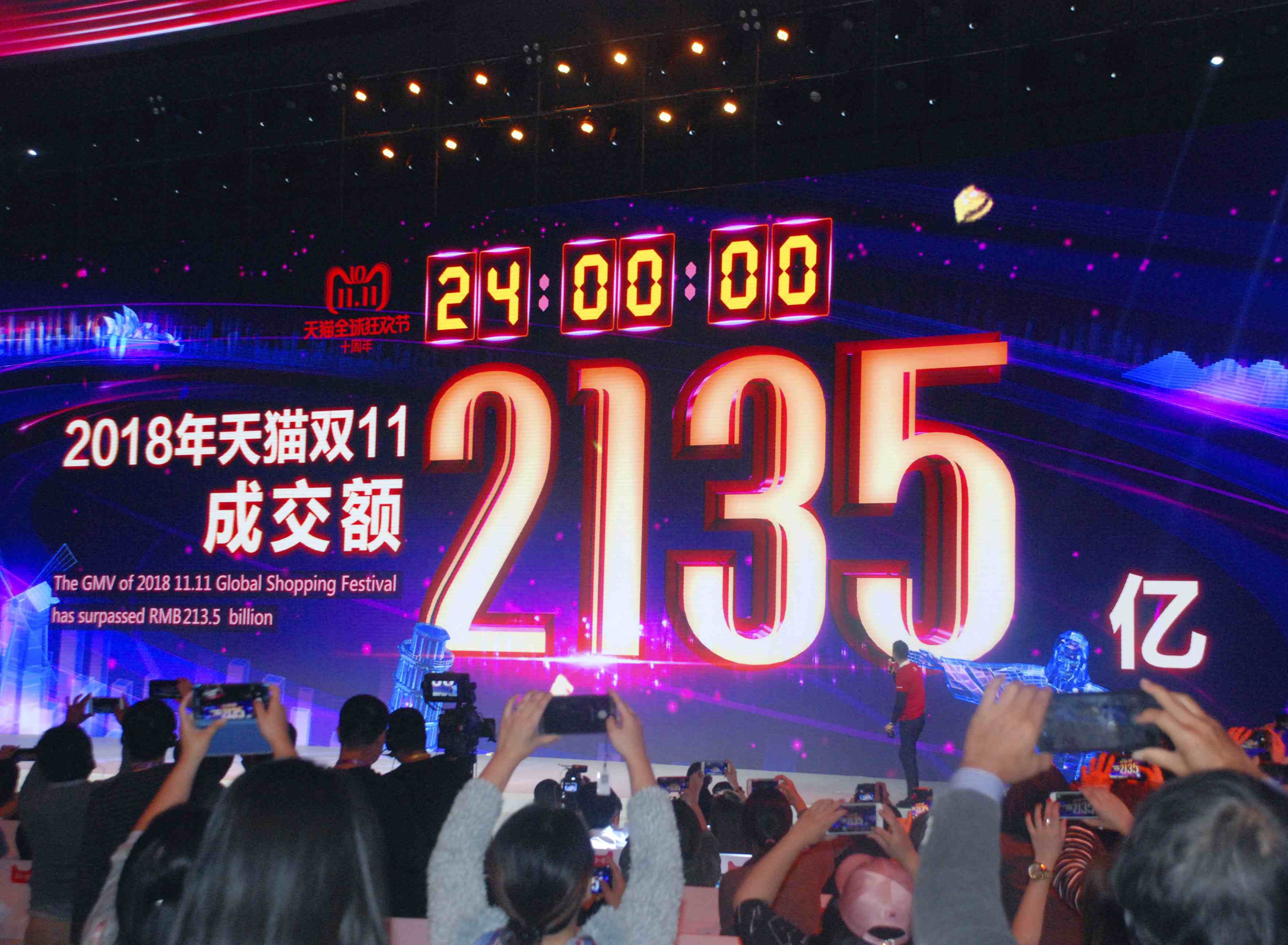
Sales on Tmall.com on the "Double 11" shopping extravaganza of 2018 cross 210 billion yuan. /VCG Photo
Sales on Tmall.com on the "Double 11" shopping extravaganza of 2018 cross 210 billion yuan. /VCG Photo
However, the rising demand for imported goods, and the record sales on this year's "Double 11" shopping extravaganza, around 213.5 billion yuan, appear to show the opposite.
Some experts say that China's consumer market is only heading toward a more rational and diversified end.
(Top image: Result of an online poll unveils China's buzzword of 2018, December 20, 2019. /VCG Photo)

SITEMAP
Copyright © 2018 CGTN. Beijing ICP prepared NO.16065310-3
Copyright © 2018 CGTN. Beijing ICP prepared NO.16065310-3